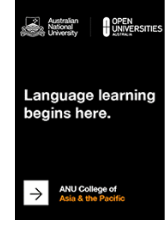Politicians and public servants operate in a world dominated by ‘fast policy thinking’ and political risk and reward, but it doesn’t need to be this way, Russell Ayres and Trish Mercer write.
Learning Policy, Doing Policy, recently published by ANU Press, argues for improvement in this understudied area, showing that policymakers can improve their practice by tapping into the insights offered by academic theory, and that academic understanding can be improved by better engaging with practitioners.
The book grew out of an Australia and New Zealand School of Government workshop at The Australian National University, which brought together academics and policy practitioners, who concluded that the process of learning is the linchpin between theory and practice. Bringing together the two worlds of academia and the public service is crucial to the success of both sides, and to the wider task of good policy-making, and learning is key to this.
Australian public servants are known for learning their craft ‘on the job’ and for a pragmatic bias to quick action, a characteristic that was very much present in the rapid design of Australian state and federal governments’ health and economic policies and programs during the COVID-19 pandemic.
A downside of this preference for faster policy action can be missed opportunities for reflection, and a lack of feedback that can effectively tweak policy implementation.
Even when public servants do take time to reflect on policy performance, they often do so with little or no engagement with theorists and academics. One otherwise impressive example was an internal workshop in 2019 on the federal policy response to the Global Financial Crisis. This assisted later COVID-19 policy responses and was an example of reflective practice by current and former senior public servants contributing to subsequent urgent action.
This was a laudable process, but could the participation of an astute academic or two have helped implement the lessons learned? Governments are not without resources on this. For example, Successful Public Policy, published in this same year, provides a roadmap in this regard, with its contributors employing a ‘policy success assessment map’ in their diverse Australasian case studies.
Since the 1990s, leading politicians, academics, and informed commentators have persistently opined about the weakening policy capacity of public servants and their departments. Practitioners learning from academia about low-jargon policy theory with practical value is central to solving this issue of policy-making capacity.
While government agencies have made attempts at this, so far it has been in a relatively unstructured way, with many public servants undertaking policy studies that take terms and ideas engendered in a relevant policy theory back into their workplaces, some of which are highly contested amongst academics.
Learning Policy, Doing Policy is one of many emerging calls for change on this. It shows there are many exceptions to the simplistic assumption that there are necessarily few linkages between the ‘two worlds’ of academic theory and policy practice, and explores the main theories about policy that public servants have found helpful, and the challenges involved in delivering public policy programs to public servants.
It focuses on how policy-making theory is sometimes put into practice, with former and current practitioners describing how in their policy-making experience they adapted academic theories to suit their particular circumstances.
This insider knowledge is uniquely useful for understanding how policy is made and how theory can be applied and modified, making it essential reading for those who research and teach in policy studies, and somewhere individual practitioners and their agencies could turn for guidance on how to bring the strengths of policy theory to the realities of policy-making and implementation.
One of the most important insights academia has for government is that given the complex nature of the policy process over which policymakers have limited knowledge and even less control, there can be no ‘theory of everything’.
A s Glyn Davis, Distinguished Professor at Crawford School of Public Policy, observed, COVID-19 reminded Australians that an effective public service remains indispensable to their basic needs, especially in times of crisis.
s Glyn Davis, Distinguished Professor at Crawford School of Public Policy, observed, COVID-19 reminded Australians that an effective public service remains indispensable to their basic needs, especially in times of crisis.
It is crucial for policymakers to engage with academia, always recognising that theory cannot provide ready-made solutions. Rather, it offers valuable insights and can help avoid errors in thinking and analysis. If practitioners ignore theory completely, they risk making a difficult task all the more problematic.





 Unlocking policy potential
Unlocking policy potential
 From ‘publish or perish’ to ‘collaborate or crumble’
From ‘publish or perish’ to ‘collaborate or crumble’